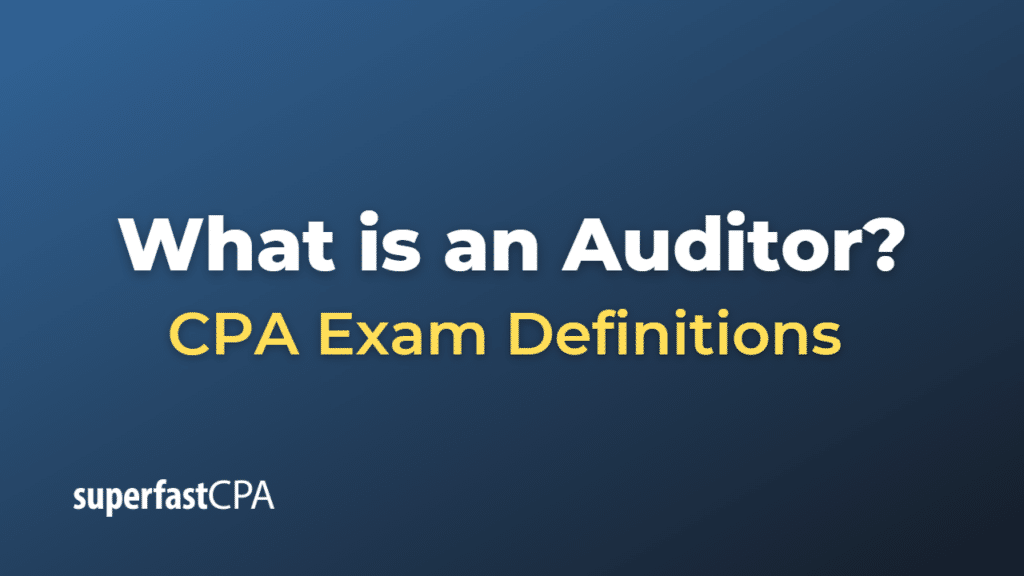Auditor
An auditor is a professional, usually a certified public accountant (CPA) or a chartered accountant (CA), who is responsible for examining and verifying the accuracy and reliability of an organization’s financial statements, records, and accounting practices. Auditors can be classified into two main categories: internal auditors and external auditors.
- Internal auditors: These are employees of the organization who review the internal controls, financial reporting, and operations to ensure compliance with company policies, procedures, and applicable laws and regulations. They identify potential areas of risk and recommend improvements to enhance the efficiency and effectiveness of the organization’s operations.
- External auditors: These are independent accounting professionals or firms hired by the organization to conduct an impartial audit of its financial statements. The primary purpose of an external audit is to provide an independent opinion on the fairness and accuracy of the financial statements, ensuring they are prepared in accordance with the applicable accounting standards (such as GAAP or IFRS). External auditors are required for public companies, while private companies may choose to have an external audit for various reasons, such as ensuring credibility with investors, lenders, or other stakeholders.
Auditors play a vital role in maintaining the integrity and reliability of financial information, which helps investors, lenders, regulators, and other stakeholders make informed decisions regarding the organization.
Example of an Auditor
Here’s an example of an external auditor’s role in a company:
ABC Corporation, a publicly traded company, is required to have its financial statements audited annually. To meet this requirement, the company hires XYZ Accounting Firm, an independent auditing firm, to perform the audit.
The external auditors from XYZ Accounting Firm review ABC Corporation’s financial statements, including the balance sheet, income statement, statement of cash flows, and notes to the financial statements. They perform various audit procedures, such as examining financial records, verifying transactions, and testing internal controls to ensure the financial statements are accurate and prepared according to Generally Accepted Accounting Principles (GAAP).
During the audit process, the auditors find that ABC Corporation has incorrectly classified a long-term loan as a current liability, which overstated the company’s current liabilities and understated its long-term liabilities. The auditors bring this error to the attention of ABC Corporation’s management, who correct the classification in the financial statements.
Once the audit is completed and the auditors are satisfied that the financial statements are free from material misstatements, they issue an audit opinion. In this case, they issue an unqualified or “clean” audit opinion, indicating that the financial statements present a fair and accurate picture of ABC Corporation’s financial position and performance in accordance with GAAP.
The audited financial statements, along with the auditor’s report, are then included in ABC Corporation’s annual report, which is filed with the Securities and Exchange Commission (SEC) and made available to investors, lenders, and other stakeholders. The audit provides these stakeholders with confidence in the accuracy and reliability of ABC Corporation’s financial information, allowing them to make informed decisions about the company.












